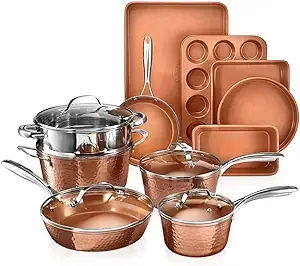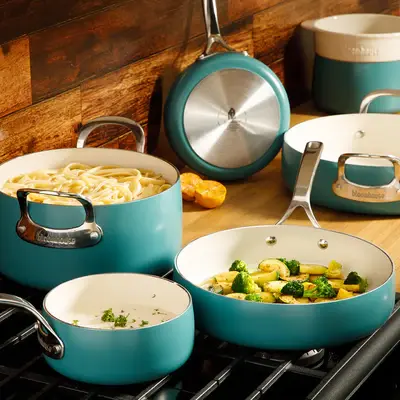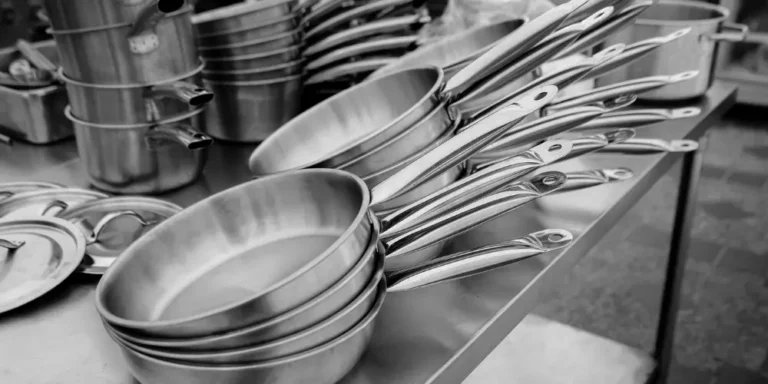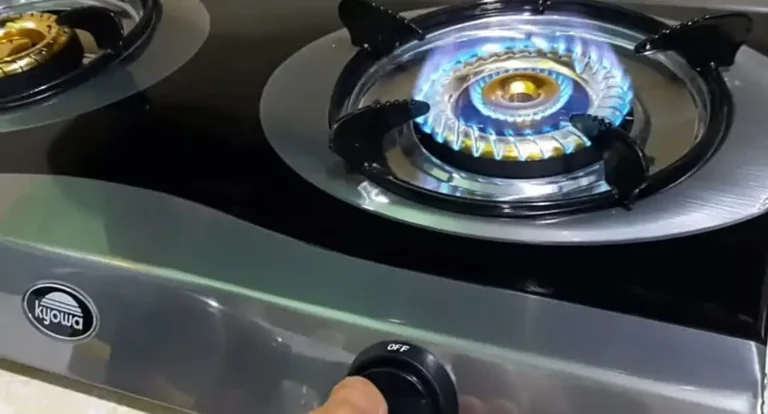Is Aluminum Cookware Safe to Use? Weighing the Pros and Cons
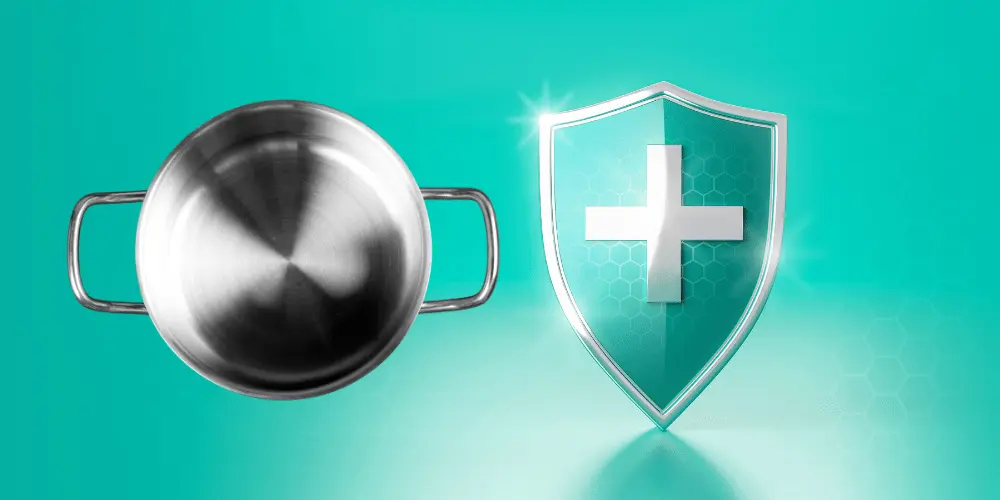
Aluminum pots and pans have been kitchen staples for decades, prized for their affordability, durability, and excellent heat conduction. However, questions have emerged on whether these convenient cookware items could pose health risks from aluminum leaching into food. With so much conflicting information out there, many home cooks are left wondering: is aluminum cookware safe to use?
The short answer is that aluminum cookware is considered safe by most health authorities in small to moderate quantities. However, there are some sensible precautions you can take to limit potential aluminum exposure from pans and pots.
In this detailed guide, we’ll dive into the latest research on aluminum cookware safety. You’ll learn key facts on aluminum and health risks, tips for safer usage, plus the pros and cons of making the switch to alternative cookware materials. Let’s weigh the evidence so you can make an informed decision for your kitchen.
Exploring the Potential Health Risks of Aluminum Cookware
What exactly causes the concerns around using aluminum pans and pots? Aluminum is naturally found in small doses in many foods, water, and the environment. The high quantities we ingest from cookware are relatively new. Here are the key potential risks under investigation by researchers:
Aluminum’s Link to Alzheimer’s Disease
The greatest aluminum-related health fear is its potential contribution to Alzheimer’s disease. The neurodegenerative disease involves a buildup of proteins called beta-amyloid plaques in the brain. Studies show elevated aluminum levels in the brain tissue of Alzheimer’s patients.
Researchers hypothesize that aluminum may contribute to Alzheimer’s in a few ways:
- Aluminum competes with calcium for absorption which can lead to nerve cell damage
- Aluminum may contribute to beta-amyloid plaque formation
- High aluminum levels could interfere with neurotransmitters in the brain
However, there is no definitive direct cause-and-effect relationship proven between aluminum from cookware and Alzheimer’s disease. The Alzheimer’s Association notes that more rigorous research is needed.
Leaching of Aluminum into Food
Even though aluminum is found in many fruits, vegetables, and water, we ingest much higher amounts from aluminum pots and pans.
Cooking acidic or liquid-based foods in aluminum pots can cause more aluminum leaching. Over time, this can lead to excess aluminum buildup in the body.
Studies analysis show that aluminum intake from cookware can range extremely widely from 0.01 mg/day to over 13 mg/day depending on the food cooked and cookware used.
To put this in perspective, the Tolerable Weekly Intake set by the WHO is just 1 mg/kg of body weight.
Safety Concerns for Uncoated vs. Anodized Aluminum
Uncoated aluminum pans and pots leach more aluminum than anodized versions.
Anodizing creates a protective oxidized layer, making the cookware tougher and less reactive. However, acidic foods can still cause significant leaching with anodized aluminum over time.
One study found that tomato sauce simmered in an anodized aluminum pan for 2 hours leached up to 56% of the allowable weekly aluminum intake. Pasta cooked in the sauce absorbed a significant amount of aluminum as well.
Aluminum cookware requires caution even when anodized, especially when cooking anything acidic.
Potential Benefits of Aluminum Cookware
With all these health risks under scrutiny, why has aluminum cookware continued to dominate many home kitchens? There are a few key beneficial properties that explain aluminum’s popularity:
- Excellent heat conduction: Aluminum heats up rapidly and evenly. This allows for quick cooking and consistent browning without hot spots.
- Lightweight: Aluminum pots and pans are much lighter than other cooking metals like cast iron or stainless steel. This makes them easier to maneuver and less strain on wrists.
- Affordability: Aluminum cookware is moderately priced, making it a budget-friendly option.
- Non-stick properties: The anodized coating applied to aluminum creates a slick, non-stick surface when properly seasoned.
If used judiciously in low-risk scenarios, these beneficial qualities make aluminum an appealing choice for casual home cooking needs.
Safest Practices for Using Aluminum Cookware
While more research is still needed, it’s smart to take precautions if you choose to use aluminum pots and pans. Here are some tips for safer usage:
- Avoid cooking acidic foods in aluminum like tomatoes, citrus, vinegar, wine, or berries. Stick to neutral foods like water, oil, milk, or eggs.
- Don’t use aluminum foil directly on food in the oven, smoking, or grilling to limit leaching. Always use a baking sheet or foil pan.
- Use non-abrasive scrubbers and avoid scouring aluminum surfaces to prevent scratches which increase leaching.
- Replace worn or pitted aluminum cookware which can leach more metal into food.
- Buy anodized aluminum cookware for greater durability and less reactivity. Avoid uncoated aluminum.
- Limit aluminum use for children and those with kidney disease who absorb aluminum more readily.
By following these precautions, aluminum cookware can still be used safely in moderation.
What Are the Best Alternatives to Aluminum Cookware?
For those looking to move away from aluminum pots and pans, what are the top options? Here are a few of the most popular and safest alternative cookware materials:
Stainless Steel
Stainless steel cookware doesn’t react with acidic foods and offers durability. Opt for 18/10 stainless containing at least 10% nickel for better heat conduction and corrosion resistance.
Cast Iron
While heavy, cast iron pans provide unmatched heating performance. The seasoned non-stick surface gets better over time. Avoid corrosion and rust by cleaning and oiling properly after each use.
Ceramic Non-Stick
Ceramic cookware offers an eco-friendly non-stick alternative without concerns of Teflon or other coatings. However, the non-stick properties eventually degrade over a few years.
Glass and Stoneware
For baking or casserole dishes, glass and stoneware provide completely inert materials that won’t leach any metals. However, they’re fragile and can shatter with abrupt temperature changes.
The Bottom Line: Is Using Aluminum Cookware Ultimately Safe?
While no definitive direct risks have been found yet, cooking with aluminum pots and pans may potentially contribute to excess aluminum consumption over time. Leaching is highest when cooking acidic or liquid-based dishes, especially with worn or uncoated aluminum.
To enjoy the benefits of aluminum cookware safely, your best bet is to:
- Use anodized aluminum pans rather than raw aluminum
- Avoid cooking acidic foods
- Replace any pitted aluminum cookware
- Alternate use with other safer cookware types
Exercising these precautions when cooking with aluminum pots and pans can minimize potential aluminum exposure. Given the inconclusive link to Alzheimer’s disease so far, occasional aluminum cookware usage for most people should pose minimal risk. However, those sensitive to heavy metal impacts may prefer to avoid aluminum cookware altogether.
There are certainly excellent alternatives to aluminum available today if you decide to make the switch. But with sensible precautions, your trusty aluminum pots and pans can still pull their weight safely in your kitchen.

